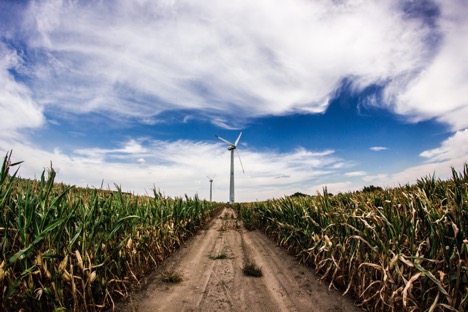
Ag tech, short for agricultural technology, is becoming more abundant and garnering the interest of venture capitalists worldwide. In fact, one ag tech startup called Indigo has raised over $359 million in funding according to Crunchbase, the well-known startup assessment website. Indigo addresses the increasingly imminent need for sustainable agricultural practices through a process of applying microbe bioinformation to enhance crop health, and in return, crop yield. In a Bloomberg interview this January, Indigo’s president and CEO, David Perry, explained,
“The hope is that we are able to grow agricultural crops, improve yields in order to be able to feed a growing population, and do so in a way that is environmentally sustainable. So, we use less of our fresh water supply, we have less nitrogen runoff in that water supply and we create fewer greenhouse gases through the manufacturing and application of chemicals.”
Although it is the top-funded ag tech startup to-date, Indigo has many industry competitors. Take EdenShield, a company that has created non-toxic pesticides from indigenous desert plant extracts that lower plant aroma and thus attract fewer insects. EdenShield’s all-natural approach has raised $3.1 million in seed funding and is geared toward greenhouse crops.
Moreover, sustainable ag tech is being developed for nearly every part of the farming process. Natureworks, a cleantech startup that boasts $150 million in equity, has found a way to turn carbon in the atmosphere into a product called Ingeo. Ingeo is “a new material for plastics & fibers with unique properties that all begin with greenhouse gases”. Among its many applications, Ingeo is used to make an assortment of sustainable agricultural products such as pots, landscaping, mulch film, yard waste bags and more.
“The CropX system automatically analyzes the exact water needs of different parts of each field based on topography, soil structure, and current moisture.”
CropX is an Israeli startup that uses technology to monitor and control irrigation. First, farmers self-install an in-field soil moisture and temperature tracker. Then, the software implements a cost-effective and perfectly timed water distribution process detailed in the quote above. Since 2013, CropX has raised $10 million in funding and expects to revolutionize crop yields and both water and energy conservation.
Some succeeding sustainable startups have been developing their technology for many years. mOasis was founded at Stanford in 2010 and has raised $6.2 million from investors. mOasis created a non-toxic, FDA-approved soil additive that assists plants’ water retention similarly aimed at addressing conservation, improving crop yield, and minimizing chemicals in the environment. Regarding mOasis’ soil additive efficiency,
“A field test from UC Davis found the product provided 30% yield increase for broccoli – using 25% less water.”
–Forbes 25 Most Innovative Ag-Tech Startups 2017 article.
Farmers aside, the demand for sustainable agriculture is remains. Consumer-driven companies are succeeding as well by delivering “hyper-local” produce. One company that has built impressive partnerships with supermarkets including Giant and ACME among others, is called BrightFarms. BrightFarms locates farms in close proximity to stores to deliver extremely fresh produce. It is no mystery how the company has raised $57.9 million.
Although many ag tech companies exist, it is exciting to see those with sustainable practices flourishing. Whether they are biology, chemical, software-based, they are raking in considerable cash that benefits farmers, consumers, the bottom-line and the environment alike. One can only hope that sustainability becomes a core consideration for agricultural investors and inventors. Keep an eye on the many Agtech accelerators to learn more about the most recent developments.

